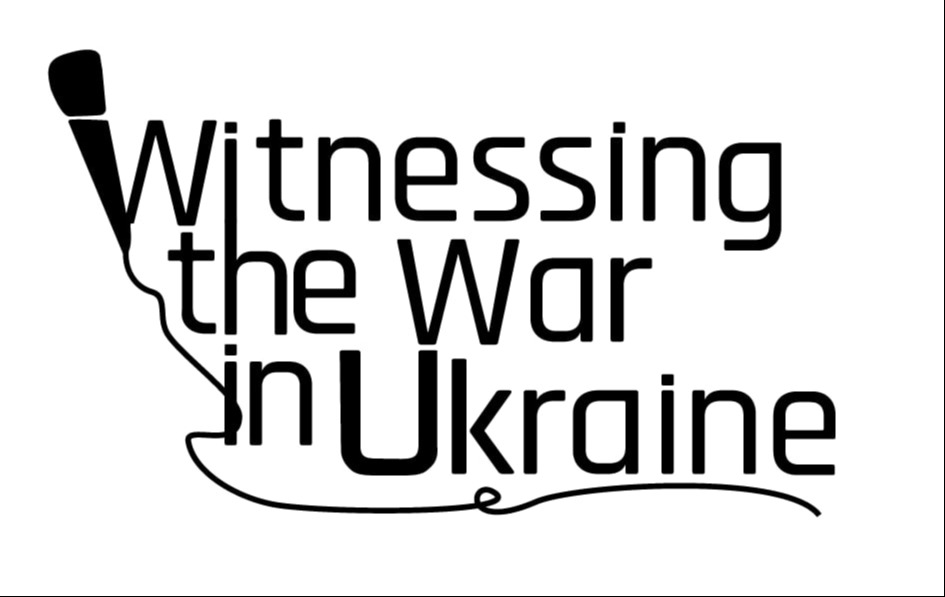Witnessing the War in Ukraine: Testimony in the Pursuit of Justice
Testimony in the Pursuit of Justice
Summer Institute
27-30 August, 2024 - Wrocław, Poland
As an urgent response to the Russian military aggression against sovereign Ukraine, several partner institutions launched the Summer Institute Witnessing the War in Ukraine in July 2022 and then hosted the Second Institute in June 2023. Over the two years, the circumstances of the war led to the rapid growth of grassroot activism and formation of new research communities both in Ukraine and beyond. As academic researchers, we consider it as our professional and ethical obligation to continue the initiative we introduced two years ago to further disseminate our academic expertise in oral history, ethnography, memory studies, interview research and research of witness literature, as well as to share this knowledge with a broad and evolving community of practitioners working in various local settings.
The third Summer Institute in 2024 will focus on testimony research in the pursuit of justice, with an ambition to chart novel disciplinary approaches for oral history, memory studies and anthropology, while affording victims of the war a space of trust, empowerment and dignity.
We invite the prospective WWSI 2024 participants to bring to the limelight, contextualize and interrogate injustice as it has been witnessed, observed and experienced, from a variety of conceptual and disciplinary perspectives, across diverse ethnic, religious, and cultural groups of Ukraine. Testimonies provided by eyewitnesses play a pivotal role in uncovering crimes, establishing culpability of war criminals, and securing redress for victims. The first-hand testimonies serve not only as crucial components in legal proceedings but also as a solid basis for upholding human rights and international law during armed conflicts. Moreover, such juridical work with witnesses lays the groundwork for restoring trust in the legal system and fostering peace in post-conflict societies.
The concept of genocide is of special interest within the framework of WWSI 2024. Since 2014 the rhetoric of genocide has been tested to provide a juridical qualification of the crimes of the Russian Federation committed in Ukraine. We will discuss existing scholarly approaches and gauge the possibility of qualifying assaults against one’s life, one’s group identity, one’s cultural heritage and one’s natural habitat as crimes of genocide in a comparative perspective. Another focus of WWSI 2024 is proposed to be on experiences of occupation and pursuit of justice in the formerly occupied territories.
Over the course of four days, the institute will offer a series of presentations, workshops, and mentorship opportunities examining current trends in scholarly and creative reflections on witnessing the war in Ukraine. Invited speakers and faculty will lead such discussions and invited participants will be offered opportunities to discuss their work with other members of the Institute. Testimonials to the work of the previous Summer Institute can be found here.
The Summer Institute will be held in person in Wrocław, Poland. Although, there will be an opportunity to join some sessions online. Links will be published in the online program soon.
The working language of the Institute is English.
Agenda
Registration opens
Keynote lecture by Dirk Moses "Genocide and Armed Conflict: A Complex Relationship"
Genocide has been alleged many armed conflicts today, ranging from Ukraine to Gaza to Ethiopia. As a word to describe the “destruction of nations,” genocide captures the noting of attacking collective identities better than its rival concept, crimes against humanity. While the same actions can be covered by both concepts, then, genocide is distinguished by its intention. Legally, genocide requires what the international jurisprudence calls “specific intent” (dolus specialis), meaning that the only aim of an attack is to destroy members of a national, racial, ethnic, or religious group “as such”: simply on the grounds of their identity — for who they are, not for anything they may have done or are doing. This intent is distinct from the military necessity that is intrinsic to armed conflict, although genocide often occurs during armed conflict. Genocide is difficult to prove in courts, because military campaigns contain mixtures intentions — like reprisals or excessive destruction as deterrence — and because targeting putatively military targets can have genocidal effects on civilian populations and the nations they constitute. This paper will elaborate these issues with references to current conflicts and legal cases underway in international courts in order to better delineate the issues confronting Ukraine today. While the paper evinces understanding for the recourse to claims of genocide by attacked groups, it asks whether this choice precludes others, and whether attending to the context and causes of armed conflict reveals their deeper logic: the utopian striving for permanent security.
Speaker: Dirk Moses
Moderator: Natalia Khanenko-Friesen
Special event by DUHK, CIUS, UOHA
Dinner
Restaurant STARY KLASZTOR
Address: 1 Purkyniego Street.
Transport from Zajednia: Tram No. 17, 11 stops, exit at Pl. Nowy Targ stop.
Opening Discussion
Welcome messages from the WWSI 2024 Organizing Committee and Partners:
Gelinada Grinchenko, University of Wuppertal, Germany
Natalia Khanenko-Friesen, University of Alberta, Canada
Eleonora Narvselius, Lund University, Sweden
Alina Doboszewska, Dobra Wola Foundation, Poland
Oksana Khomiak, National University of Kyiv-Mohyla Academy, Ukraine
Moderator: Marek Szajda
Dialogue Panel "From Rage and Resilience to Memory and Museumification: Testimony in Search for Justice"
Rage and Resilience: Care and Support for Activists, Aid Workers and Researchers on the Frontlines of Conflict
Activists, aid workers, and researchers who engage on the frontlines of conflict are among the most courageous leaders in our world today. Investigating attacks, violations, and abuse is crucial work that saves lives and that contributes to a more just, equal and peaceful world. However, the collateral costs of this courage, commitment, and often sacrifice, are insufficiently acknowledged in practice and receive almost no attention in the academic literature. This presentation puts frontline workers at the centre, shining light on an international “ethical environment of our time” (Blackburn 2021) in which cognitive dissonance and denial (Cohen 2001) prevail, and where the “surrealism” of international commitments (Marriage 2006) leaves frontline workers straddling an abyss between discourse and realities. Notions of activist rage (Owens 2020), resilience (Seymour 2019) and hope (Solnit 2016) will be explored. This session is designed to be highly participative, with a goal of contributing to building a more robust framework for care and support for frontline activists, aid workers, and researchers.
Speaker: Claudia Seymour
The Srebrenica Genocide: Oral Histories and Searching for Justice
It is with Holocaust survivors that the current type of oral history preservation began. It was about 30 years after the Holocaust that attention started being paid to the need to begin preserving stories of not only survivors of the Holocaust but also of witnesses and others who were bearing witness to the hideous events perpetrated by the Nazis. Similarly, it took almost 30 years for the Srebrenica Oral History Project, initiated by the Srebrenica Memorial Center, to start. Up to this point, the Memorial has completed 620 oral histories. Initially, the first half was completed in cooperation with the Sarajevo War Childhood Museum and BIRN BiH. As the Memorial began to develop its own methodology, the second half was completed independently. This presentation will detail the development of the Srebrenica Oral History Project, including the challenges the team has been facing. In addition, it will elaborate on the significance of partnering with other collecting organizations and the impact of projects focused on Holocaust oral history collection and preservation on the work of the Memorial Center.
Speaker: Hasan Hasanović
Moderator: Natalia Khanenko-Friesen
Break
Experiencing – Remembering – Speaking about the Past: On the Signs of Traumatization in Biographical Interviews and Texts
In my paper, I will discuss possible manifestations of past traumatization in biographical interviews and texts on the basis of my empirical work in the field of social constructivist biographical research and my research on life stories of survivors of collective violence. In doing so, however, I will not refer to a diagnostic key or even to the so-called post-traumatic stress syndrome, but rather illustrate on a descriptive level the conspicuous features in autobiographical narratives or self-presentations for which it is appropriate to pursue assumptions about traumatizing experiences or phases. I will also discuss: What are the chances offered by the method of biographical-narrative interviews directing a conversation for setting off initial processes of healing, and what are the risks and dangers involved?
Speaker: Gabriele Rosenthal
Moderator: Gelinada Grinchenko
Lunch
Historic Recurrence in Wartime Rapes, Children Born of War, and Kidnapping Children: From World War Two to Russian War against Ukraine
My book about Polish children born of war focuses on the Second World War but has unexpectedly become relevant due to the war in Ukraine. Throughout the years I've worked on this project, I believed I was addressing the past—the war from eighty years ago and its consequences. It never occurred to me that what I was writing would become so pertinent. In the accounts we receive today, it is evident that the same violent mechanisms are being used against Ukrainian women as were used 80, 30, 25 years ago, and are still used today against women of various nationalities. This also applies to children. Once again, children are being stolen by the aggressor to destroy one nation and bolster their own. We keep hearing about Ukrainian children being taken to Russia to be Russified. Isn't this what the Germans did with the children from Central and Eastern Europe? It remains the same method and idea of defeating the enemy. Women and children are the easiest targets. History repeats itself, and it is up to us to do something about it.
Speaker: Jakub Gałęziowski
Moderator: Alina Doboszewska
Break
Mentor session
During the mentor session, WWSI 2024 participants will have the opportunity to discuss their projects with the speakers, receive guidance, and get feedback.
Free evening
Project Presentations 1
In this session WWSI 2024 selected participants will present their research projects with the discussion to follow.
Moderator: Gelinada Grinchenko, Natalia Khanenko-Friesen
Hosted by Ukrainian Oral History Association
Oral history and the Holocaust
Oral history has played a key role in trials against Holocaust perpetrators. Many trials, such as the Nuremberg trials, relied on the testimony of eyewitnesses, in particular Survivors. Witness statements provided direct, detailed and irrefutable evidence of the existence and scale of the crimes committed. The witnesses described the conditions in the concentration camps, ghettos and methods of mass extermination, which helped to create a complete picture of the Holocaust. The details and immediacy of the testimonies given not only made it possible to realize the human dimension of the Holocaust, but also helped to undermine any attempts to relativise or deny the Holocaust. The evidence presented was so overwhelming and detailed that it became indisputable historical testimony. The public speeches of Holocaust survivors during the trials also changed the public perception of the subjectivity of the victims: they showed not only the suffering but also the heroism and resilience of the survivors, which changed their perception from passive victims to active participants in their history.
Speaker: Józef Markiewicz
Moderator: Alina Doboszewska
Break
How Testimonies and Interviews Help Reveal War Crimes: A Journalist's View
In this report, I will explore how testimonies and interviews play a crucial role in uncovering war crimes, focusing on the work of Ukrainian journalists. Specifically, I will highlight the efforts of the "Suspilny" and "The Kyiv Independent" teams in investigating Russian war crimes in Ukraine. These journalists have managed to uncover crimes that even specialized bodies could not detect. Throughout this report, we will examine specific cases and discuss how certain interviews can serve as starting points for thorough investigations.
Speaker: Yevheniia Podobna
Moderator: Natalia Khanenko-Friesen
Lunch
Witnessing the War in Ukraine: Artistic Calls for Justice
The artistic witnesses of the war in Ukraine created the special archive from 2014. Ukrainian Art answers powerfully for the Russian invasion, documenting the experiences and emotional states of Ukrainian society, creating the instruments of social therapy, and directly witnessing the war crimes. As in case of journalist or oral history activities the Art practices of witnessing create the space of the very specific ethical questioning. The freedom of Art Message is limited with the position of the artist, his/her understanding of the dignity of other people. The different ways of witnessing demonstrate Ukrainian artists Alevtina Kakhidze, Kateryna Aliinyk, Pavlo Makov, Yuriy Bolsa, Danylo Movchan, Vlada Ralko, Katya Buchatska, Yulya Danilevska and others. Working with an artist's own experience of the experience of other people raises the question of the responsibility to the people, whose life or death appear as a source of artistic message. Ukrainian artists ask themselves if they can speak on behalf of victims or to use the artifacts from the ruins in their works. We will analyze the approaches of Yana Kononova, Mikhailo Alekseenko, Zhanna Kadyrova, artistic duo Daniil Revkovskiy and Andriy Rachinskiy and others.
Speaker: Oksana Dovgopolova
Moderator: Eleonora Narvselius
Break
Film screening "Intercepted"*
In "Intercepted," the director Oksana Karpovych presents a stark contrast between the everyday life of Ukrainians and intercepted phone calls between Russian soldiers and their families. These calls, captured by Ukrainian intelligence, reveal the soldiers' experiences and emotions, from heroic illusions to disillusionment, looting, and war crimes. The juxtaposition of these voices with images of invasion destruction and Ukrainian resilience highlights the dehumanizing power of war and the imperialist nature of Russian aggression. This creates a powerful and emotionally charged portrayal of the cruelty of war.
After the screening, the Summer Institute participants will have a unique opportunity to discuss the film with the director Oksana Karpovych.
Speaker: Oksana Karpovych
Moderator: Eleonora Narvselius
Hosted by Canadian Institute of Ukrainian Studies, University of Alberta
*Only for the WWSI 2024 participants
Free evening
Crimes of Ecocide in Ukraine: Visualizing and (Re)sounding the War
As an independent expert I contribute to the state investigation of crimes of ecocide in Kharkiv city and the region - the actions of the Russian military that could have or have already caused the ecological catastrophes in Ukraine, which affect humans, flora and fauna, water and soil. The crimes I witnessed and documented include targeted bombing of a scientific nuclear reactor; destruction of Oskil river dam and damage to other dams; burning of gas-condensing factories, gas storages, gas stations; morphological changes of the soil; and acoustic terror as a specific disruption of acoustic ecology. The investigation of crimes of ecocide is a new field, the scale of impact is huge both in time and territory, there is a lack of experts and a lack of the forensic methodology. The ongoing war restricts the possibility of evidence collection, therefore the crime scene investigation with the drones becomes increasingly important. I want to share exclusive drone footage used as forensic evidence, my own experience collecting evidence of crimes of ecocide and the associated problems. I will communicate the expertise of the fellow members of the ecological association “Stop Poisoning Ukraine”.
Speaker: Nataliya Zubar
Moderator: Gelinada Grinchenko
Break
Pursuing Justice and a Just Peace for Ukraine: The Role of Testimony in Judicial Accountability and Broader Social Healing
This talk addresses Ukrainian articulations of justice and a sustainable just peace in the context of Russia’s ongoing near-decade of war. This war, particularly after Russia’s full-scale invasion in February 2022, has been characterized by a variety of global crimes, including aggression and systematic, widespread atrocity crimes (i.e., war crimes, crimes against humanity, and genocide). Ukraine’s defensive resistance has adhered closely to just war traditions, yet much global conflict literature is based on intra-state warfare and fails to capture these distinctions of the Russia-Ukraine war. In this talk, I address how Ukrainian and other testimonies of the war and atrocities are vital to addressing this under-explored research gap. I also argue that acknowledging and addressing Russia’s willful deployment of sustained, severe atrocity crimes as a central military component is a necessary precondition to securing peace and the recovery of global human rights norms. Drawing from trauma healing, conflict transformation, and transitional justice literature, I discuss the role of testimonies in pursuing judicial accountability and broader social recovery, that latter of which is often beyond the purview of even robust court systems. As Ukrainian identity has been explicitly targeted by Russia’s sustained, destructive violence, I discuss the role of testimony in reclaiming agency, from the present realities of the full-scale war to older violence dynamics in the historical Moscow-Ukraine relationship.
Speaker: Kristina Hook
Moderator: Alina Doboszewska
Lunch
Project Presentations 2
In this session WWSI 2024 selected participants will present their research projects with the discussion to follow.
Moderator: Gelinada Grinchenko, Natalia Khanenko-Friesen
Hosted by Ukrainian Oral History Association
Closing Remarks
Gelinada Grinchenko, University of Wuppertal, Germany
Natalia Khanenko-Friesen, University of Alberta, Canada
Eleonora Narvselius, Lund University, Sweden
Alina Doboszewska, Dobra Wola Foundation, Poland
Moderator: Marek Szajda
Museum Tour
Speakers and Participants of the WWSI 2024 are welcome to join the tour in Centrum Historii Zajezdnia
Speakers
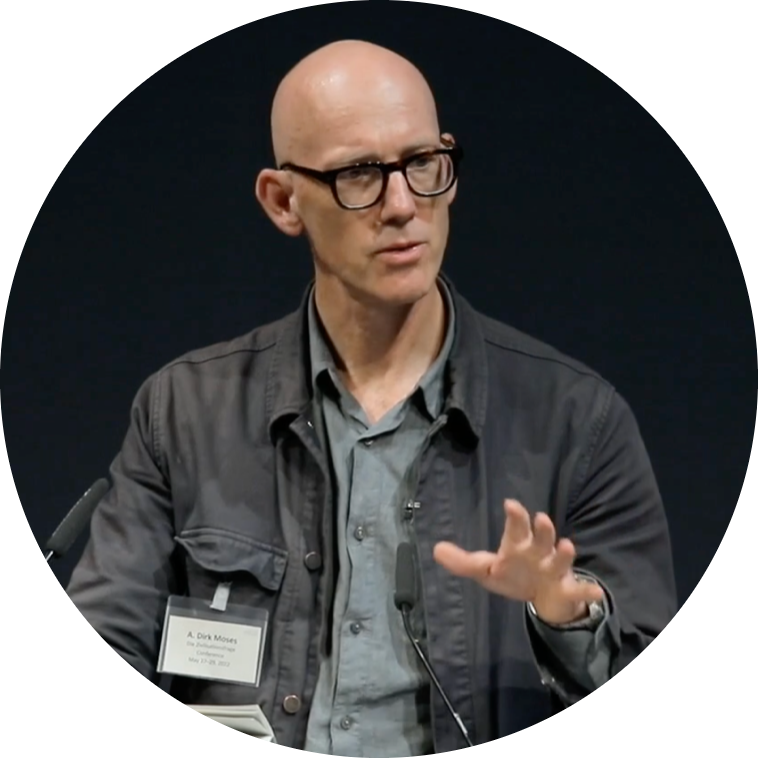
A. Dirk Moses
City College of New York
A. Dirk Moses is the Anne and Bernard Spitzer Professor of International Relations at the City College of New York. Raised in Brisbane, Australia, he was educated at the Universities of Queensland (B.A. 1987), St. Andrews (M.Phil. 1990), Notre Dame (M.A. 1994), and California, Berkeley (Ph.D. 2000). Before coming to City College, he was the Frank Porter Graham Distinguished Professor of Global Human Rights History at the University of North Carolina at Chapel Hill from July 2000 to July 2022. Between 2000-2010 and 2016-2020, he taught at the University of Sydney. He held the Chair of Global and Colonial History at the European University Institute, Florence, from 2011 to 2015. His first book, German Intellectuals and the Nazi Past (2007), was awarded the Clio-Online ‘'Historical Book of the Year'’ prize. Dirk has written extensively in the fields of genocide and memory studies. Recent anthologies include Patriotic History and the (Re)Nationalization of Memory (Routledge 2023) and Decolonization, Self-Determination, and the Rise of Global Human Rights Politics (Cambirdge, 2020). Dirk's latest book, The Problems of Genocide: Permanent Security and the Language of Transgression, appeared in February 2021. Two anthologies appearing this year are The Holocaust Museum and Human Rights (University Pennsylvania Press) and The Russian Invasion of Ukraine: Victims, Perpetrators, Justice, and the Question of Genocide (Routledge). He is senior editor of the Journal of Genocide Research.
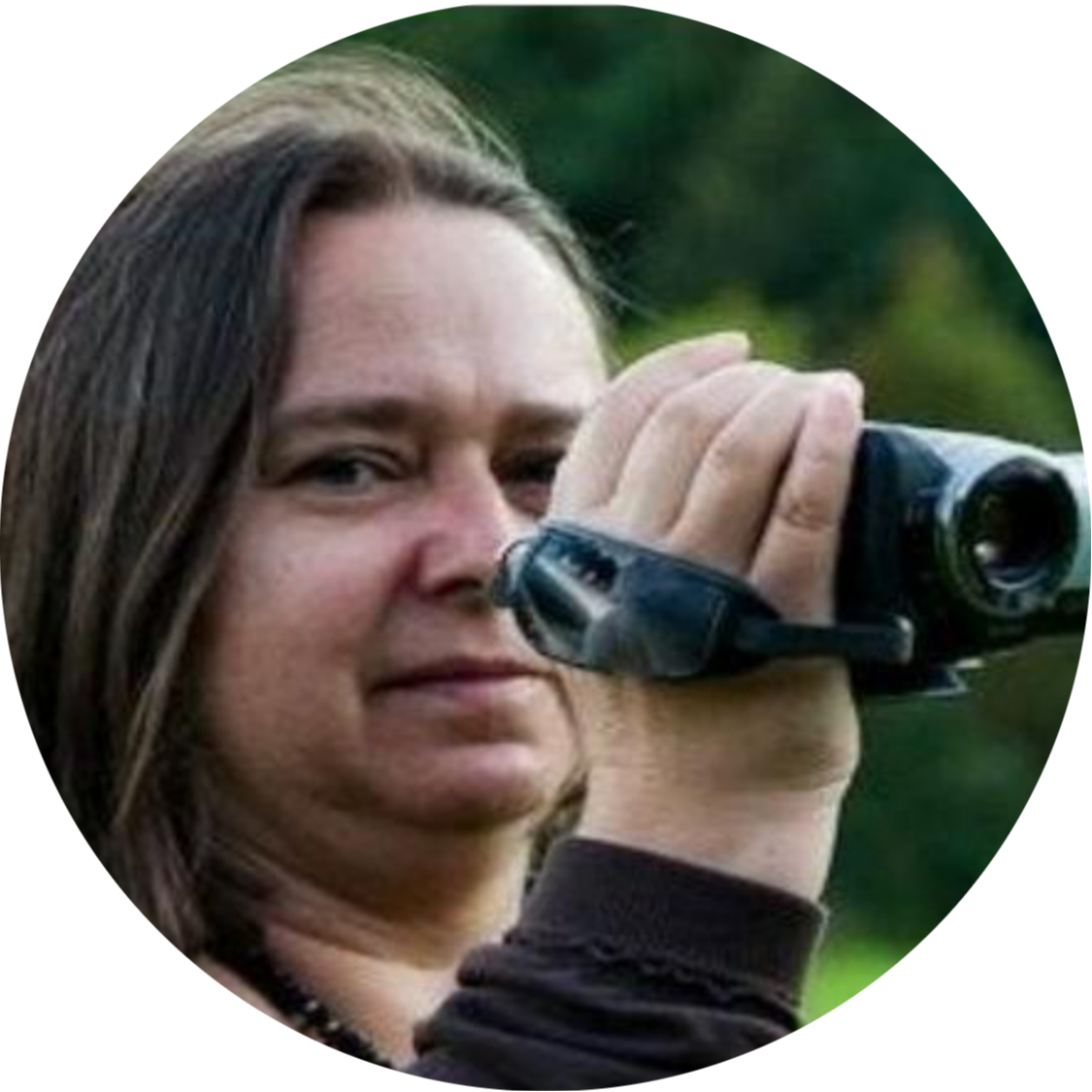
Alina Doboszewska
Jagiellonian University; Dobra Wola Foundation
Alina Doboszewska is a researcher at the Institute of Sociology of the Jagiellonian University, NGO activist: founder and president of the Dobra Wola Foundation in Krakow, member of the Polish Oral History Association and Memory Studies Association. She has completed several oral history projects in Poland, Ukraine, the Czech Republic, Slovakia, and Sweden, and 11 documentary films based on biographical interviews. Her research interests include practical aspects of oral history methodology, forced resettlement after World War II, everyday life in Stalinist times and the movement of Ukrainian dissidents in the 1960−1980s.

Claudia Seymour
Geneva Graduate Institute
Claudia Seymour is an applied social researcher with more than 20 years of experience, working primarily in conflict-affected environments. Her research specialisations include youth, protection, resilience to violence, and the ethics of international engagement. She has extensive experience working with the United Nations and as a research consultant for a range of international NGOs and think tanks, with a focus on sub-Saharan Africa. She is a trainer in protection and human rights and a lecturer and convenor in MA courses on the political economy of violence, conflict management, and the ethics of international engagement. Her current research project, ‘Balancing on the margins: young people’s pathways to engaging with/transforming violence,’ is a comparative interdisciplinary inquiry into how young people cope with and make sense of violence, drawing on mixed methods including ethnography, narratives, and the practice of yoga and pranayama. She is the author of The Myth of International Protection: War and Survival in Congo, published by the University of California Press in 2019. Claudia is a Senior Researcher with the Centre on Conflict, Development and Peacebuilding (Graduate Institute of International and Development Studies, Geneva) and a Research Associate at the Department of Development Studies, School of Oriental and African Studies (University of London).
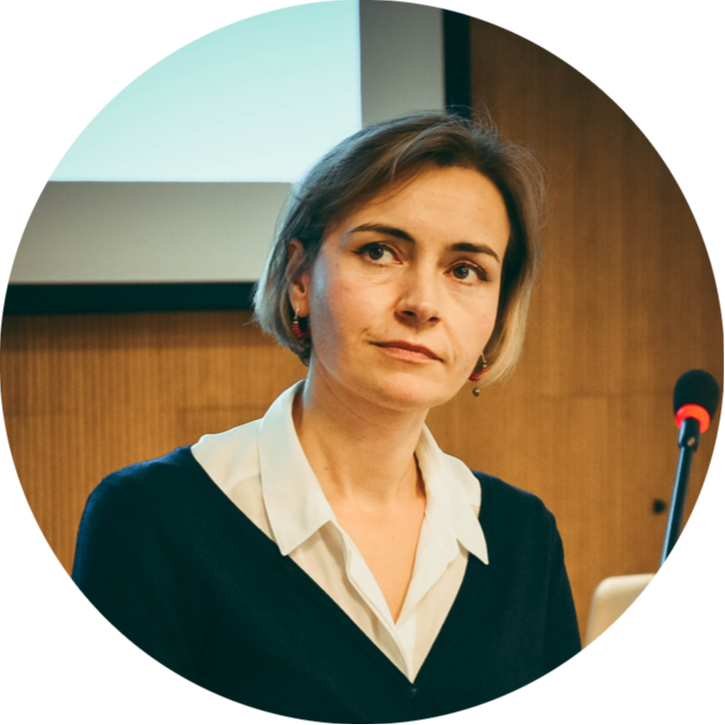
Eleonora Narvselius
Lund University
Eleonora Narvselius is anthropologist from Lund University, Sweden. Her research interests comprise Ukrainian memory culture, narrative analysis, ethnicity, and nationalism. In the course of her academic career, she has participated in several international research projects focusing on urban environment, memory cultures and cultural heritage of East-Central European borderlands. Among her core publications is Ukrainian Intelligentsia in Post-Soviet L’viv: Narratives, Identity and Power (Lexington Books, 2012).
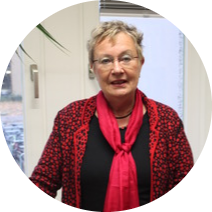
Gabriele Rosenthal
University of Göttingen
Gabriele Rosenthal is a sociologist and Professor (Emerita) of Qualitative Methodology at Institute of Methods and Methodological Principles in the Social Sciences, University of Göttingen in Germany. She is renowned for her contributions to biographical and generational research, and qualitative methodology, as well as for her studies of the collective and intergenerational effects of the Holocaust and collective violence more generally. Her empirical research first concentrated on the impacts of World Wars I and II, the "Third Reich", the Holocaust and similar crimes in the present. In the context of a research project on outsider and established groupings in Palestine and Israel, she was focused on the perspectives and experiences of Palestinians as members of different groupings and (local) group constellations. In the last 20 years she has done research together with Artur Bogner on violent conflicts and processes of de-escalation in Ghana and Uganda, and on former child soldiers and ex-rebels in northern Uganda. Currently, they are both involved in a research project on the individual and collective recollection of slavery and the slave trade in Ghana and Brazil.
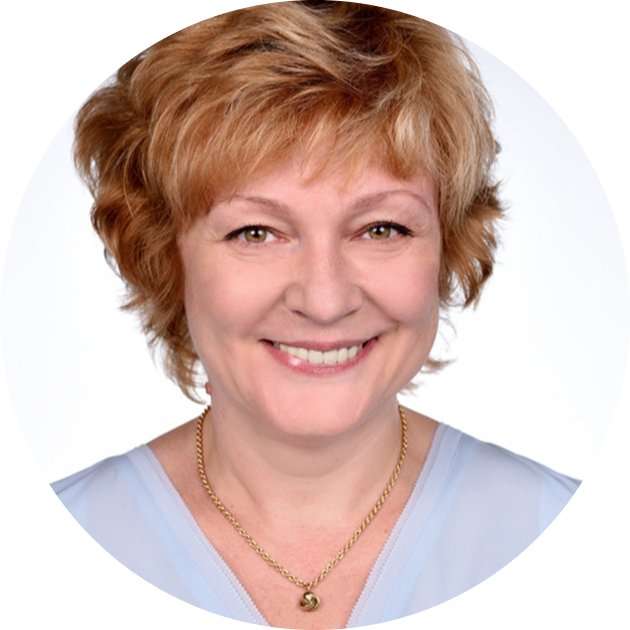
Gelinada Grinchenko
University of Wuppertal; Ukrainian Oral History Association
Gelinada Grinchenko is Philipp Schwartz Fellow at the University of Wuppertal (Germany); Co-Head of Ukrainian Oral History Association; Co-Head of the German-Ukrainian Historians Commission; Editor-in-Chief of the Ukrainian based academic peer-reviewed journal Ukraina Moderna. Her main areas of interest are oral history, the history and memory of WWII, Holocaust and Genocide Studies, Memory Studies. She has edited several books and journals, and published many chapters and peer-reviewed articles on these issues. Her latest edited volume is: Listening, Hearing, Understanding: an Oral History of Ukraine in Twentieth and Twenty-First Centuries (in Ukrainian), ART-KNYHA, Kyiv, 2021.
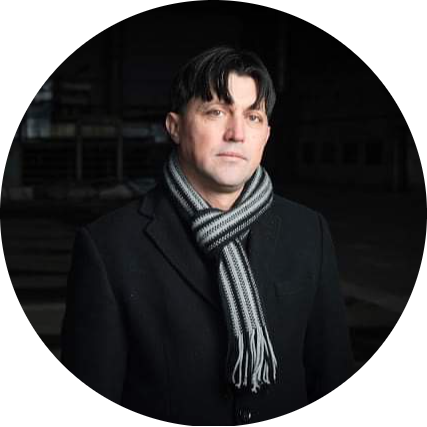
Hasan Hasanović
Srebrenica-Potočari Memorial Centre
Hasan Hasanović is a Srebrenica genocide survivor, a Head of Oral History at the Srebrenica Memorial Center, and an Honorary Research Fellow at the De Montfort University, Leicester, UK. Hasanović is the author of Surviving Srebrenica (2016), which tells his personal story of survival, and he speaks frequently about his experience at academic and commemorative events worldwide. His co-edited book Voices from Srebrenica: Survivor Narratives of the Bosnian Genocide, was published in 2020, and it provides accounts of eyewitnesses of the Srebrenica genocide. Most recently, he headed on behalf of the Memorial Center a joint project by the Center and the War Childhood Museum in Sarajevo, focused on recording stories of children who survived the Srebrenica genocide, as well as the Memorial’s project with BIRN focused on the collection of oral history testimonies of Srebrenica genocide survivors. He holds a degree in Criminal Sciences from the University of Sarajevo, and has given numerous talks nationally and internationally about the Srebrenica genocide and his personal experience.
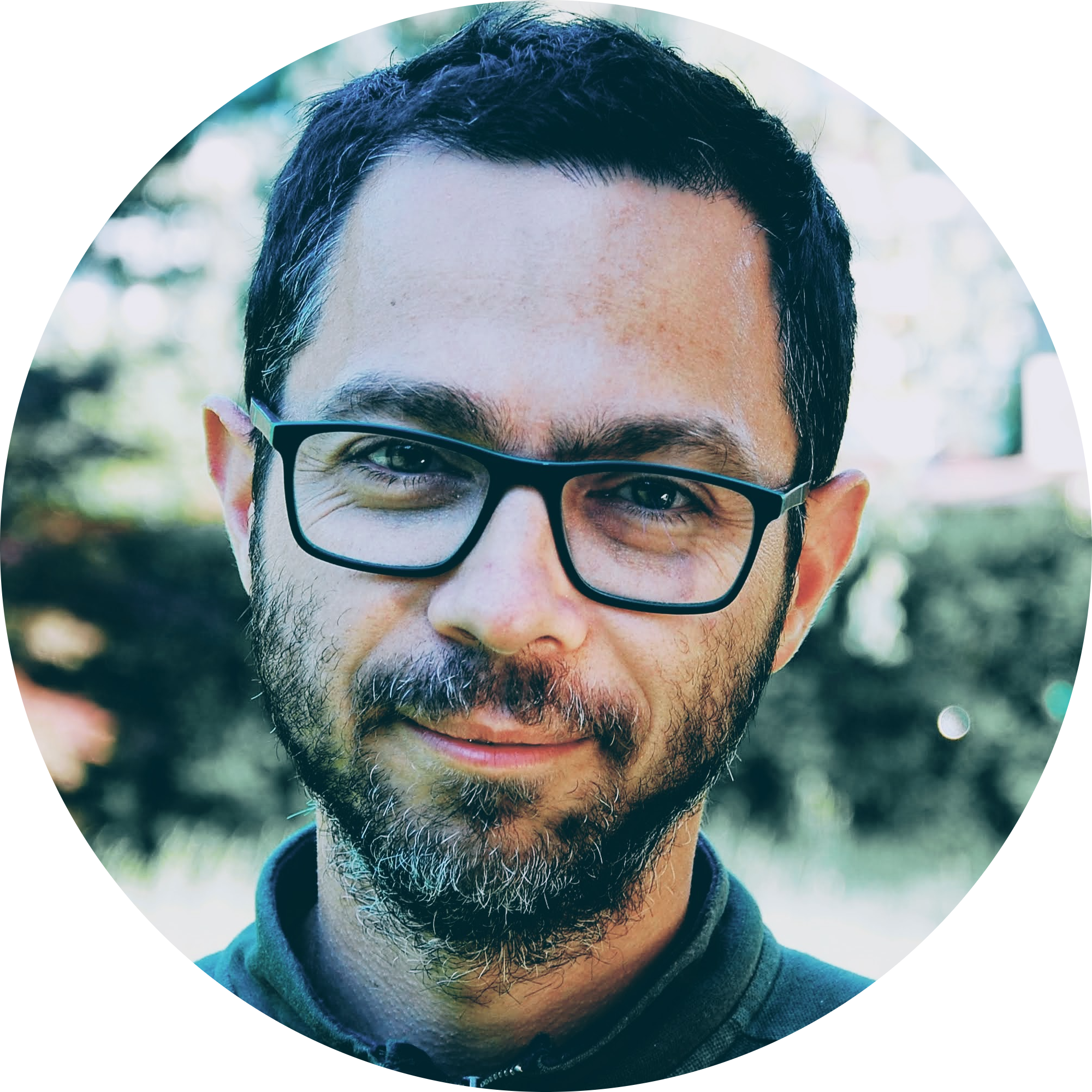
Jakub Gałęziowski
Jakub Gałęziowski is a social and oral historian with a focus on the Polish history of the Second World War and its consequences. In 2021, he received a PhD in history from the University of Augsburg and the University of Warsaw for his dissertation about Polish children born of war, recently published as Niedpowiedziane Biografie. Polskie dzieciurodzone z powodu wojny (Warsaw: Wydawnictwo Krytyki Politycznej, 2022). The book has already garnered awards for outstanding works in the humanities issued in Poland in 2022. Currently, he is affiliated with the University of Warsaw, where he teaches oral history and biographical methods. He is the author of numerous articles in these research fields as well as in social history. He is a co-founder and president (2022–2025) of the Polish Oral History Association and a council member of the International Oral History Association (2023–2025). He is an editor of “Wrocławski Rocznik Historii Mówionej” and affiliated with “The Children Born of War Project” as the Central and Eastern Europe specialist.
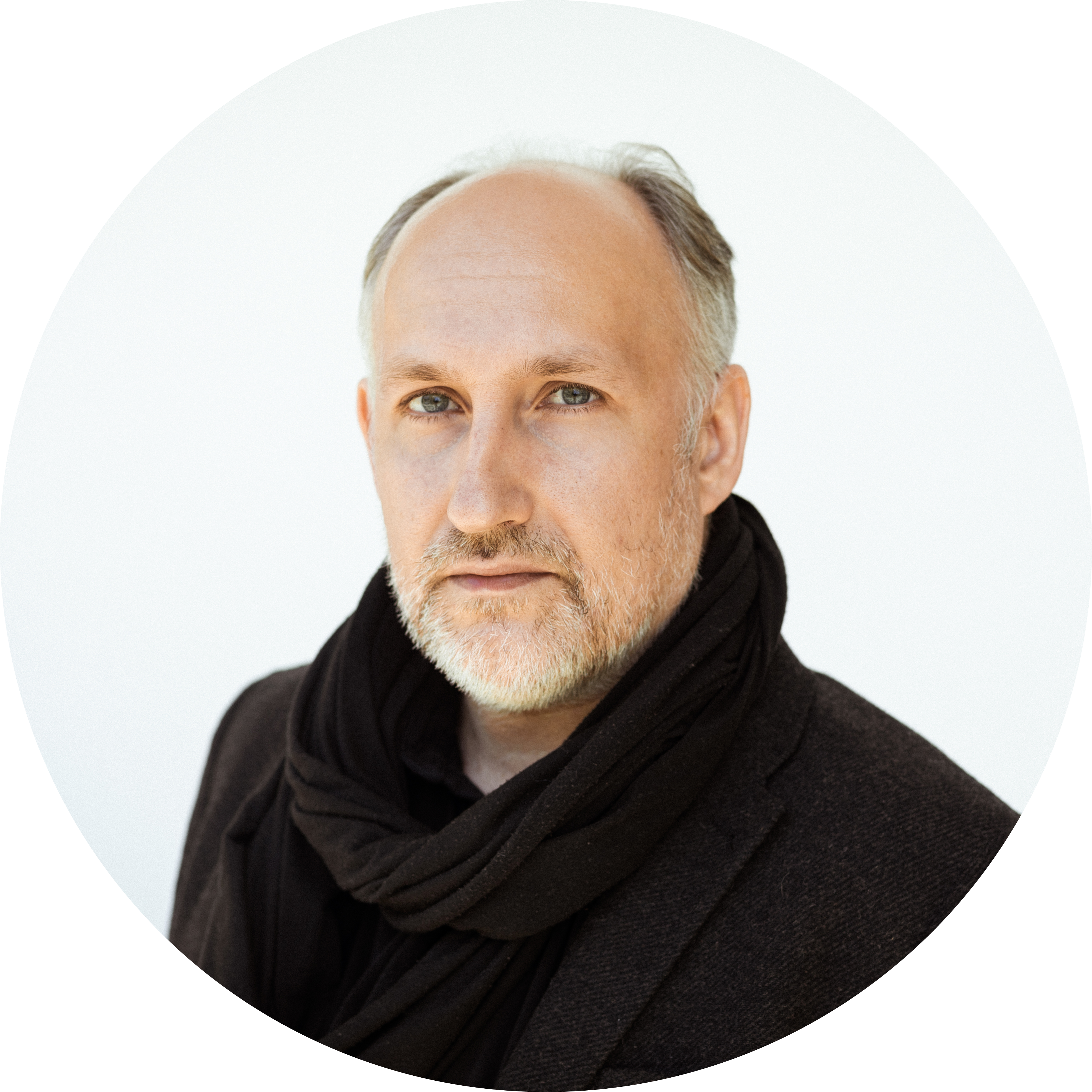
Józef Markiewicz
POLIN Museum of the History of Polish Jews
Józef Markiewicz is an anthropologist and museologist, currently works as a Senior Oral History Specialist at the POLIN Museum of the History of Polish Jews in Warsaw, where he supervises the implementation of research projects documenting the fate of Polish Jews from an individual perspective. A graduate of the Institute of Ethnology and Cultural Anthropology at the University of Warsaw, he also studied at the Department of Ukrainian Philology at the University of Warsaw; has experience in ethnographic field research in the Lviv region and the Polish-Ukrainian borderland (transnational labor migrations in the context of national-state identity discourse; economic, cultural, and symbolic aspects of the Polish-Ukrainian border, social memory). Participant and coordinator of research projects based on oral history method on Eastern borderlands of European Union: Ukraine, Moldova, Russian Federation (e. g “White Karelian remembrance about postwar climate changes”, “Jewish and Roma memory of Transnistria”). Currently he is coordinating a visual ethnography project, documenting the last direct witnesses of the Warsaw Ghetto. Starting from May 2022, he is overseeing the development of the conceptual and documentary work of an oral history project based on personal narratives of Jewish refugees from Ukraine, as well aid-providers in Poland within POLIN Museum oral history program.

Kristina Hook
Kennesaw State University’s School of Conflict Management, Peacebuilding, and Development
Kristina Hook is an Assistant Professor of Conflict Management at Kennesaw State University’s School of Conflict Management, Peacebuilding, and Development. A specialist in Ukraine and Russia, her expertise includes genocide and mass atrocity prevention, emerging technologies and disinformation, post-conflict reconstruction, and war-related environmental degradation. She regularly consults with government, multilateral, and human rights organizations on these issues. Prior to her time in academia, she served as a U.S. Department of State policy advisor for conflict stabilization and in leadership roles with several non-governmental organizations (NGOs).
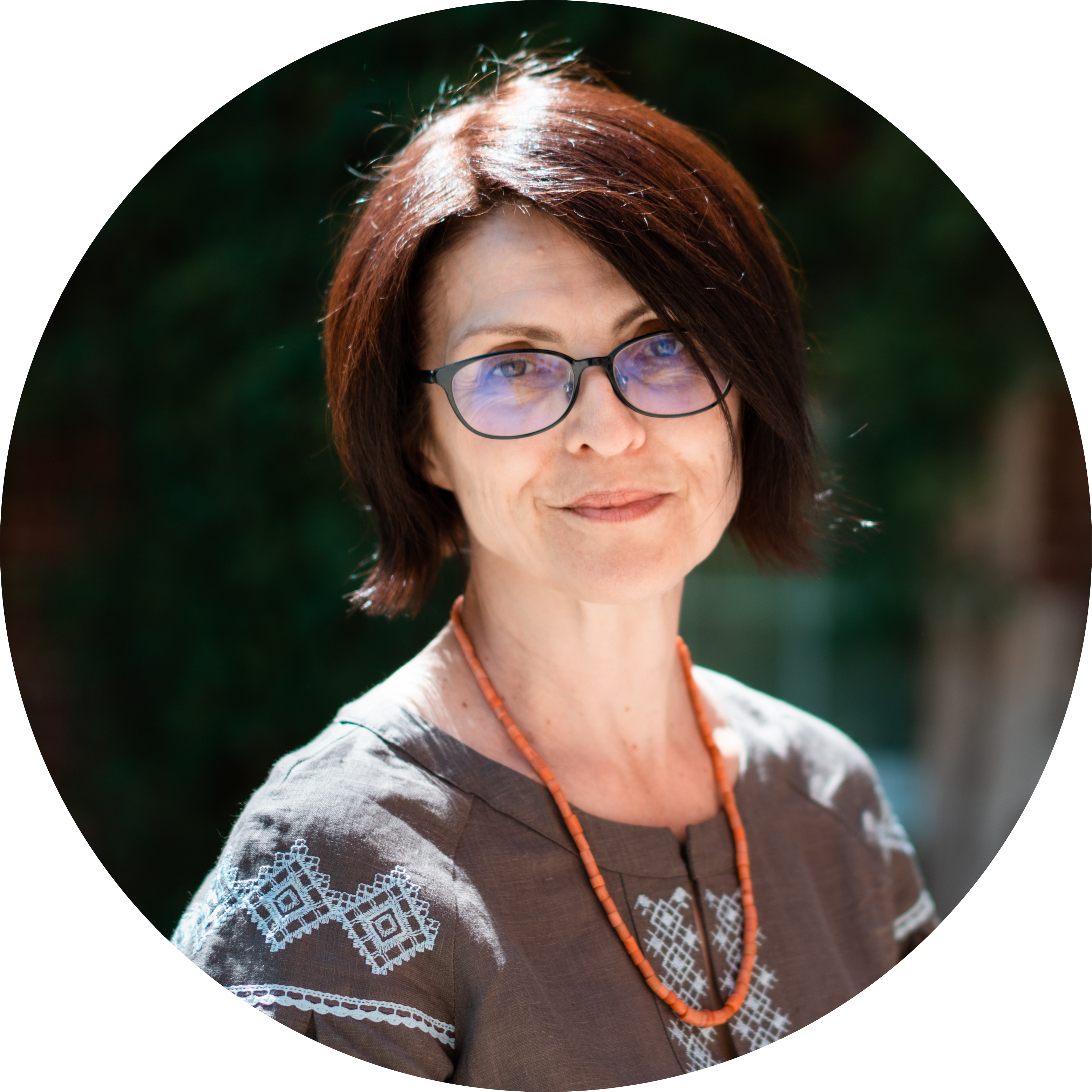
Natalia Khanenko-Friesen
Canadian Institute of Ukrainian Studies, University of Alberta
Natalia Khanenko-Friesen is an oral historian and cultural anthropologist currently serving in the roles of the director of the Canadian Institute of Ukrainian Studies and Huculak Chair in Ukrainian Culture and Ethnography, both in the Faculty of Arts, University of Alberta, Canada. Her research interests include oral history, vernacular culture, diasporic and ethnic identities, labor migration, and immigrant letter writing. She authored or (co)edited the following books monographs, "Ukrainian Otherlands: Diaspora, Homeland and Folk Imagination in the 20th Century (U of Wisconsin Press, 2015); "The other world, or ethnicity in action: Canadian Ukrainianness at the end of the 20th century" (Smoloskyp Press, 2011); "Orality and Literacy: Reflections Across Disciplines" (U of Toronto Press, 2011) and "Reclaiming the Personal: Oral History in Post-Socialist Europe" (U of Toronto Press, 2015). Dr. Khanenko-Friesen is the founding editor of Canada's scholarly journal Engaged Scholar Journal: Community-Engaged Research, Teaching and Learning. Her current book project has the working title “Decollectivized: The Last Generation of Soviet Farmers Speak Out." Since February 24, 2022, she coordinates a number of scholarly initiatives focusing on war testimony research, including hosting the summer oral history institute "Witnessing the War in Ukraine," Krakow, Poland.
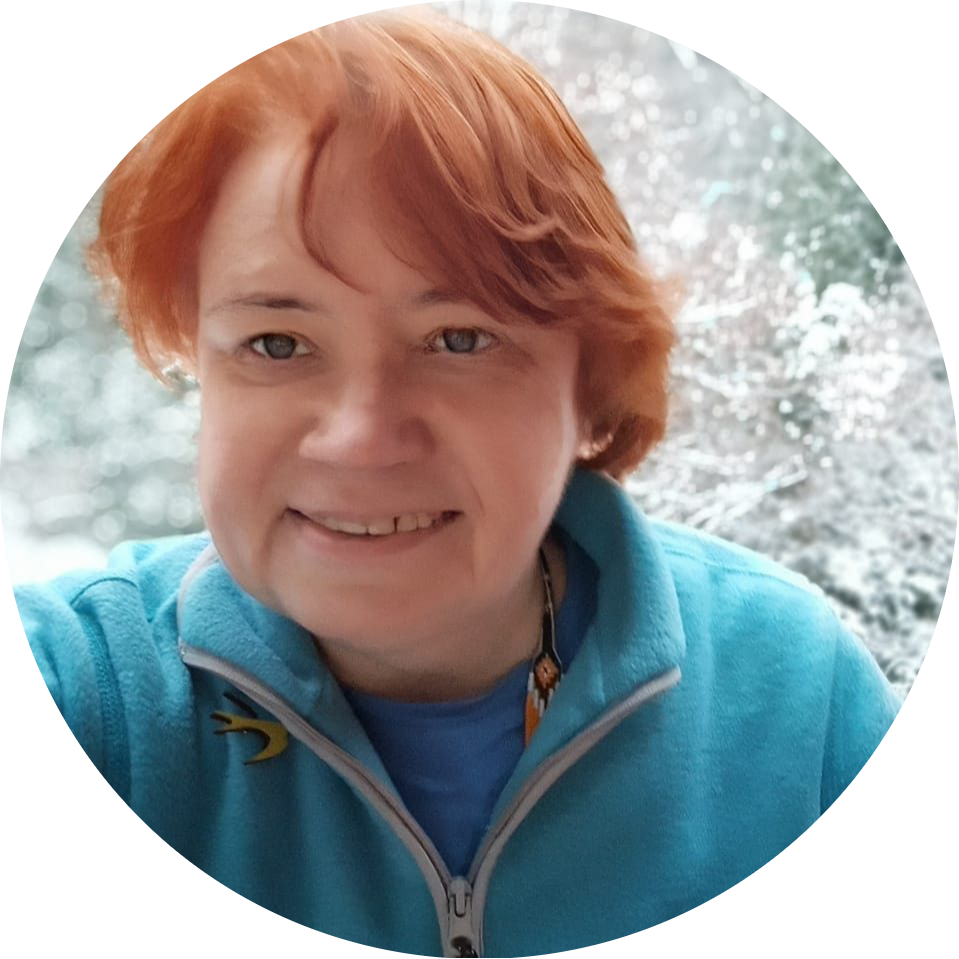
Nataliya Zubar
Maidan Monitoring Information Centre
Nataliya Zubar is a Ukrainian IT professional, human rights activist, journalist, war reporter, videographer. MD in Physics. Print media journalist and software engineer since 1982. Online media editor since 2000 at the website Maidan.org.ua that was a cradle of citizen journalism in Ukraine. Coordinator of online awareness campaigns since 2006. Verified Certificates on Social Network Analysis and Medical Neuroscience from Coursera. Chair of an international NGO Maidan Monitoring Information Center that focuses on information security, countering Russian information war and documenting Russian war crimes in Ukraine. Since March 2022, she and her team have been documenting war crimes committed by the Russian Federation in Kharkiv and the region.
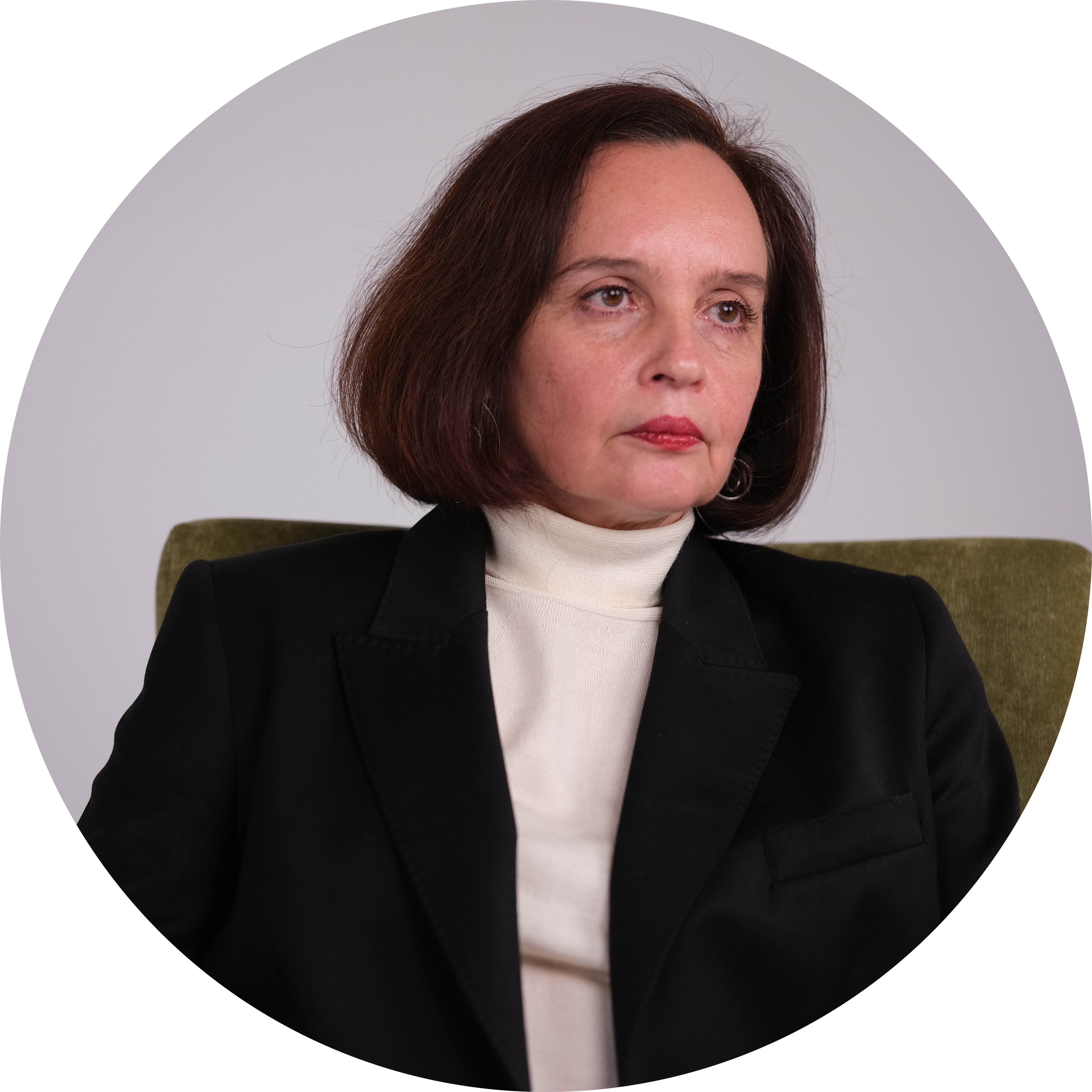
Oksana Dovgopolova
Odessa I.I. Mechnikov National University; Past / Future / Art memory culture platform
Oksana Dovgopolova, PhD in Philosophy of History, professor of the Philosophy Department, Odessa I.I. Mechnikov National University, co-curator of Past / Future / Art memory culture platform. The main areas of research interests: social reconciliation in the context of collective memory, Odesa image in “memory entrepreneurship”, the development of Odesa regional identity in time of russia full-scale invasion. From 2014 curates the projects of public history with the focus on social reconciliation. In 2019, together with Kateryna Semenyuk, she founded the Past / Future / Art project which implements educational and research projects, as well as a public program of activities to involve the wide audience into working through the past. Launched the development of the Glossary of Memory Studies for Past / Future / Art website. Co-organizer of the Laboratory of Artistic Research of War Experiences “Land to Return, Land to Care” (2022) and the Laboratory of Memorial Practices in Ukraine (2024). Co-curator of the Art exhibitions “From 1914 till Ukraine” in Kunstmuseum Stuttgart (2023), “Ground Shadows” in Kazerne Dossin Memorial Center (2023), “Mikki-Mouse Steppe” in Odesa National Fine Art Museum (2024) etc. In 2024 co-curates the Ukrainian pavilion “From South to North” at the first Malta Biennale of Contemporary Art.
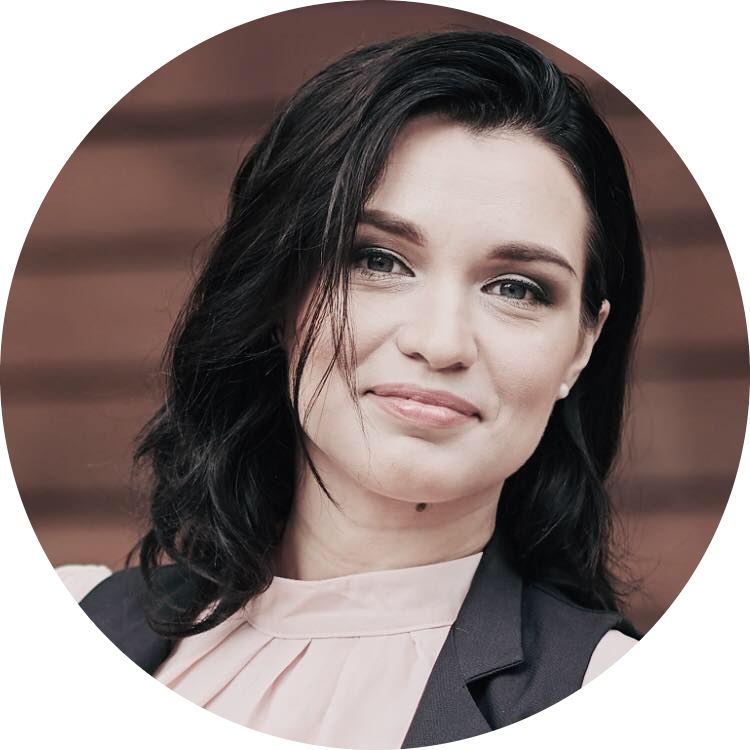
Yevheniia Podobna
Journalist & Documentarian
Yevheniia Podobna is Ukrainian journalist, documentarian, writer and scholar, Candidate of Sciences in Social Communications. In addition to journalistic work, in different years she worked on collecting memories of prisoners of Nazi concentration camps (Auschwitz and Dachau, 2012), witnesses of the accident at the Chornobyl nuclear power plant, and resettled residents of the exclusion zone (2016-2018, 2021). Since 2014, she has been working with the topic of the war in Ukraine, from 2015 to 2018 – with war correspondent on the front line. Since 2019, she has been working in military documentaries and journalism. Yevheniia Podobna is the author of six books and eight documentaries. Books: "Girls Cut Braids" (2018, a collection of stories of military women), "Fierce February 2022" (2022, a collection of testimonies about the first days of the full-scale invasion), "Cities of the Living, Cities of the Dead" (2022, stories and reports from the war in Bucha and Irpin), “Heroic cities of Bucha, Irpin, Hostomel” (2023, stories and reports from the war in Bucha, Irpin, and Hostomel), "Okhtyrka Outpost" (2023, a mosaic of stories about the defense of the city in Sumy Oblast), "Her War" (2023, collection of stories of women of war). After the full-scale invasion, she focuses on recording stories, memories and testimonies, works on memorial website-archive of the war in Bucha and Irpin and continue publishing books about the Russian-Ukrainian war based on the eyewitnesses' memories. During 2023, she shot two documentaries: "Visible Enemy" (memoirs of the Russian occupation of the Chornobyl Exclusion Zone) and "Hostomel. The first battle" (about the failure of the assault on the Antonov airfield in Gostomel on February 24, 2022, which broke the Russian plan to attack Kyiv).
Organizers and Partners

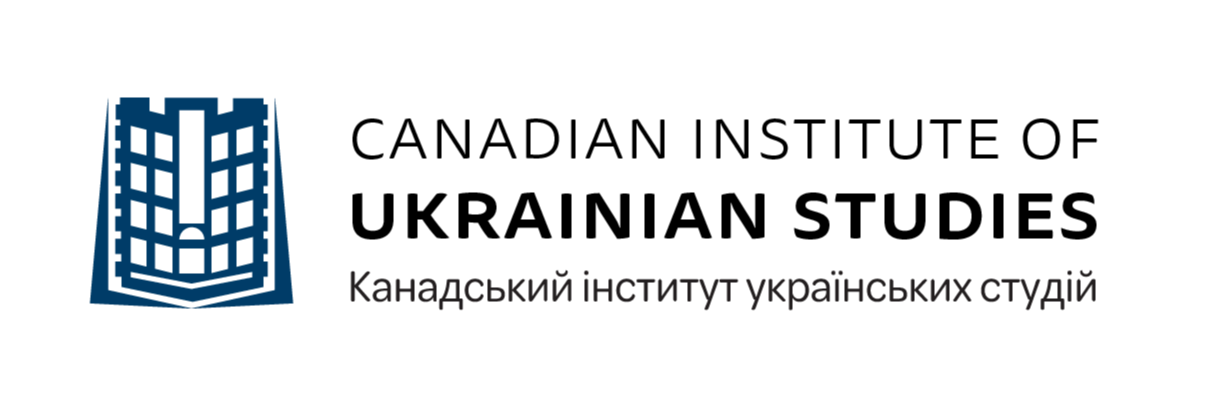

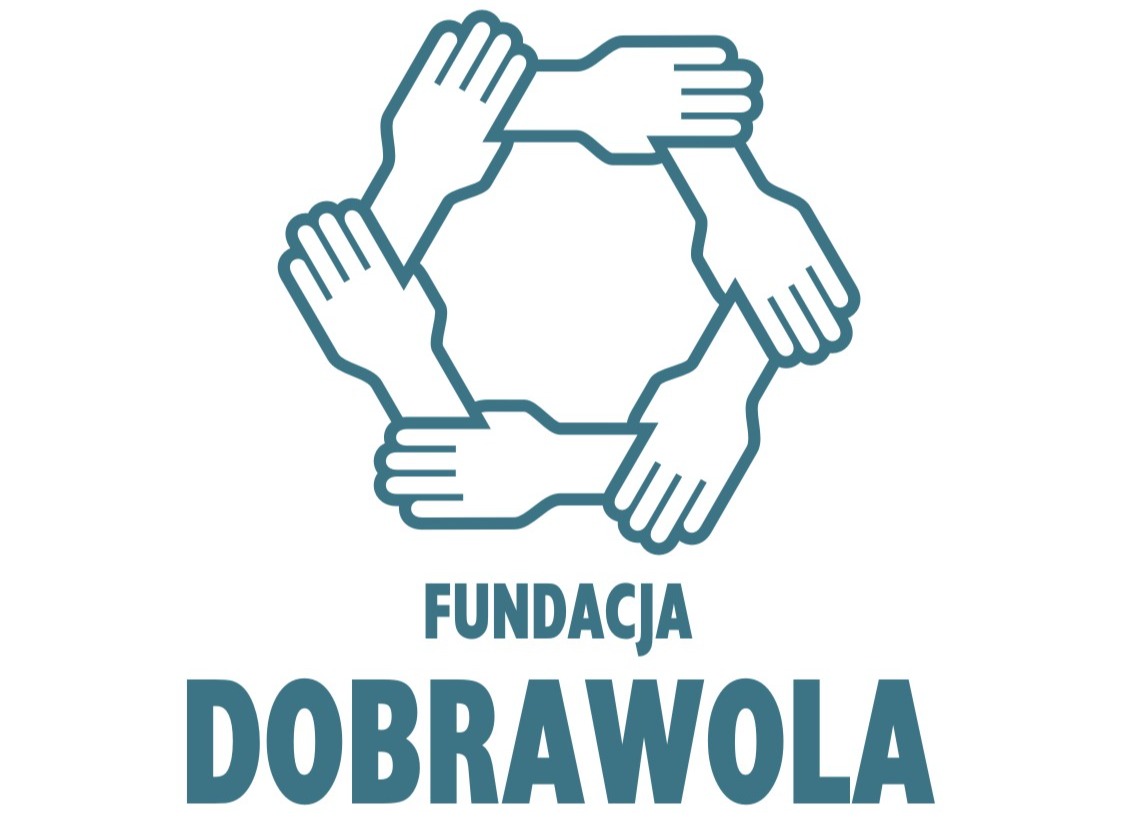


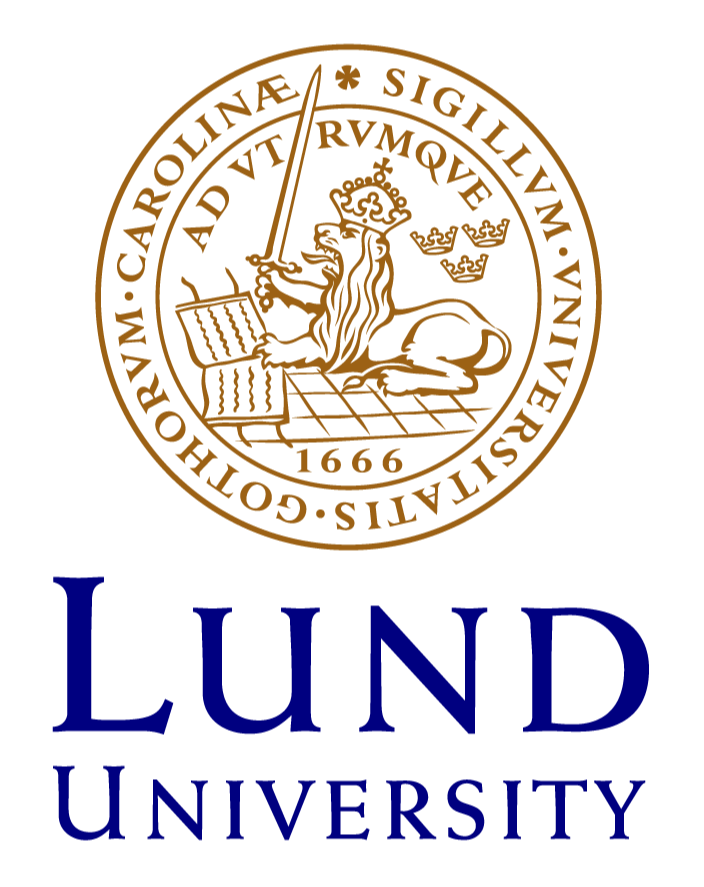
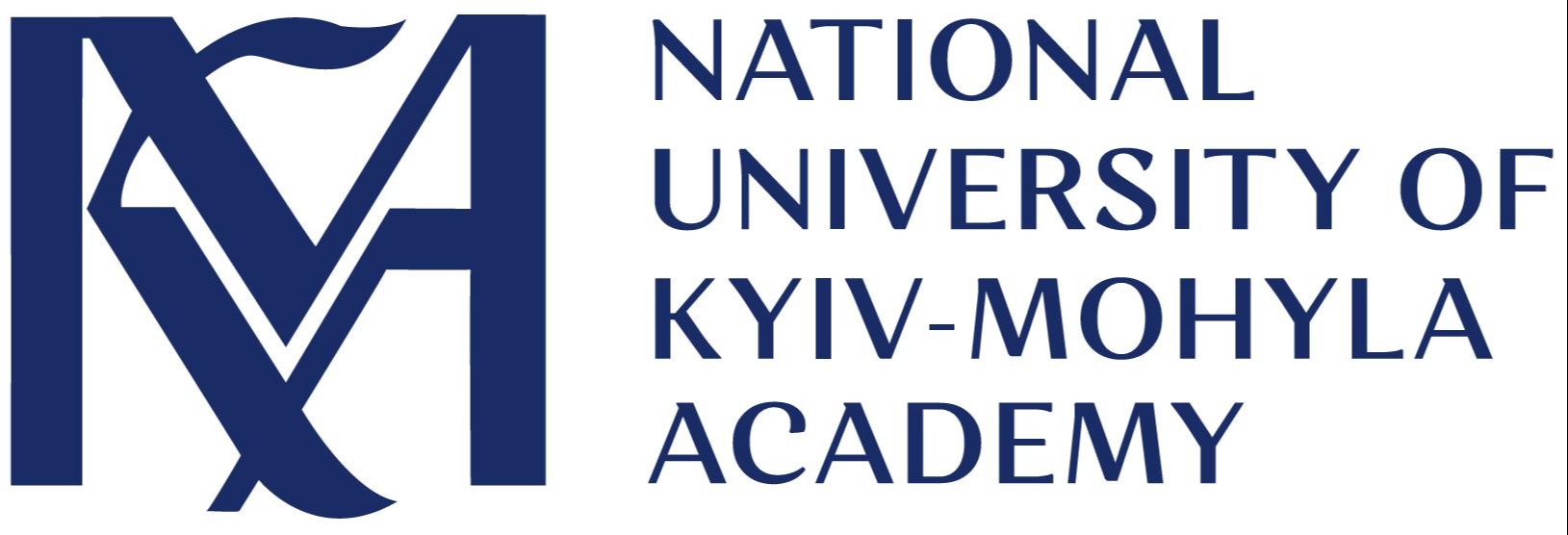


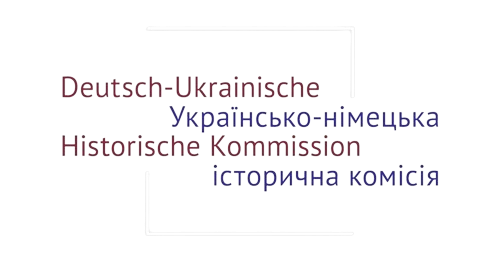


Location details
Address: Centrum Historii Zajezdnia, Grabiszyńska 184, 53-235 Wrocław, Poland
Register
